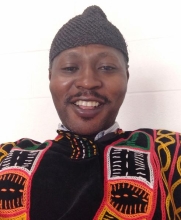CEE Seminar (ZOOM): Exploitation of Nanoscale Active Adsorbents in Carefully Designed Membranes to Control the Analysis and Filtration of Contaminants

Fullbright Postdoctoral Scholar
Madia Department of Chemistry, Biochemistry, Physics and Engineering
Indiana University of Pennsylvania
Abstract: Water free from pathogenic microorganisms and toxic pollutants is obtained by filtering and disinfecting raw water using complicated and expensive treatment technologies that rely heavily on chemicals such as chlorine to disinfect water. Chlorine, however, produces disinfection by-products (DBPs), which are known to be seriously detrimental to human health. This is particularly alarming for developing countries, where chlorine is commonly added to water at significantly high doses, and for developed countries where the population is ageing and the potential for DBPs formation is increasing due to climate change.
Inspired by nature, the current research aims at the use of chitin, the active chemical that crustaceans (e.g., shrimps, crabs and lobsters) defend themselves from pathogens, to produce new filtering materials modulated in robust inorganic aluminosilicate geopolymers and blended with highly dispersed metal oxides nanocatalysts. A key feature of the project is the valorisation of problematic wastes from the fish industry (i.e., shells of crabs and crustaceans) and low-cost agricultural residues (i.e., wood-based, rice husk and sugarcane bagasse) to produce the new filtering materials. The filters developed in this will provide multi-function treatments through disinfection by chitin and oxidation of toxic chemicals by the metal oxides and will be fabricated in the forms of flat sheet membranes and in granular particulates suitable for fixed-bed filters.
Specifically, the current presentation includes:
- Presentation of the research group/active nanoscale adsorbents.
- Application of geopolymers-based snail shell in the mechanism adsorption of dyes or heavy metals.
- Chitin nanofibril spheres containing NiO/Ni-based metal-organic composites for removal of brilliant green from wastewater.
Bio: Jacques Romain Njimou obtained a B.Sc. and M.Sc. in chemistry at the University of Yaounde 1 - Cameroon followed by a sandwich Ph.D in chemical engineering and processing/inorganic chemistry from Universities of Rome La Sapienza -Italy under Prof. Angelo Chianese and Prof. Marco Bravi, and from Yaounde 1-Cameroon under Prof. Emmanuel Ngameni and Prof. Charles P. Nanseu-Njiki.
Njimou is a lecturer at the University of Ngaoundere, Cameroon and currently a Fulbright Postdoctoral Visiting Professor in the Department of Chemistry, Biochemistry, Physics and Engineering at Indiana University of Pennsylvania (IUP), Indiana, PA, working under Sanda Maicaneanu on synthesis and characterization of nanoscale materials and their blending in geopolymers. He has been selected for various prestigious fellowships and grants for developing countries, including a three-year Erasmus award in Rome, TATA-Fellowship in India, NSP-Slovakia, Volkswagen Foundation in Germany, Eugen-Ionescu in Romania, the Fulbright Postdoc scholarship in the U.S., and now has been shortlisted for the first round of the African Research Initiative for Scientific Excellence Pilot program (ARISE-PP). His current research focuses on exploitation of nanoscale active adsorbents in carefully designed membranes to control the analysis and filtration of contaminants. He has expertise on composite materials and active adsorbents-based bio, geo-polymers, synthesis of multifunctional materials from secondary resources for water and wastewater treatment, adsorption/desorption (recovery), modification of electrodes, and manufacturing of selective filters for the separation processes.
He has particular interest in the applications of Metal Organic Materials (MOM) i.e., nanomaterials, biocomposite, nanostructured materials and separation technologies to eradicate a wide range of emerging contaminants of human health and environmental significance. Current technologies to produce drinkable water are achieved using complicated treatments that are relatively expensive and heavily reliant on chlorine, which is detrimental to health. This is particularly alarming for developing countries lacking the electricity to pump and treat water in small communities and also for developed countries as the U.S., where the population is ageing. Njimou has operated a methodological approach to extracting and purifying chitin from crustaceans' shells to fabricate geopolymers as robust supports blending nanocatalysts. These multi-functional materials exhibited great interest for water technologies to produce water filters. Chlorine is detrimental to health, but its widespread use is related to the high cost of alternatives. He proposed the use of nanomaterials to remove chemical pollutants, bacteria and viruses from water as an alternative.
Njimou will use low-cost resources to produce supports that blend nanocatalysts to fabricate hybrid nanoscale-geopolymers materials. Solar energy and active nanoscale-geopolymers will potentially be revolutionizing safe new water for all.
